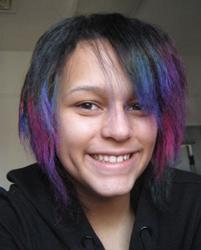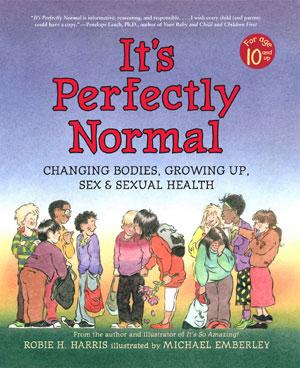For the past week, the buzz has been on the fleeting glimpse the public had of the proposed sex ed curriculum — announced by Dalton McGuinty one day and withdrawn almost immediately after a fierce backlash from minority groups.
The media has had a field day, social media was ablaze, and both those for and against the changes are rallying the troops.
But what about the target audience — what about the students for whom the new curriculum is aimed? Isn’t it about time that we took a step back and maybe looked at the furor through different eyes?
I have met Rayna Farr-Dutchin a few times. She is 15 years old in Grade 10 at the Holy Trinity Catholic High School in Kanata, which, she informs me, is “the most vanilla of vanilla.”
Farr-Dutchin is articulate, clever, funny and just the right person to talk to. I caught up with her after school.
We talk for a while before getting down to the nitty gritty subject of sex education, and it doesn’t take me long to understand where she is coming from.
“It’s not the kids who are horrified at this new curriculum, it’s the adults,” says Farr-Dutchin.
XTRA: Do you get sex education through your schools?
I remember in elementary school we had these books called Fully Alive — now remember that I went to Catholic school. I remember learning about baby development and stuff like that, but they never said “the man” or “the woman.” They always said “husband” or “wife.” I don’t think I got into sexual education until Grade 7, and then there was not a lot of time on it. They didn’t separate the classes. I mean, I have never been in a separate sex ed class, and the teacher had to sacrifice half the class to giggling kids.
XTRA: So, obviously you know about the sex ed curriculum that was withdrawn last week — do you have thoughts on it?
I think it’s a huge mistake because I know for a fact that kids are going to do it anyway. You walk through the high school hallways, and it’s one of those things you just know. I just want to tell parents: you don’t have a choice whether or not your kids learn about sex, but you do have a choice as to whom they learn it from. They can learn it from a teacher or they can learn it from a peer. The things that you hear coming out of your classmates’ mouths, they are obviously completely illogical. But you believe it because you are 12, 13, 14, my age — you believe it. I think it is so much better for us to be educated about it instead of guessing, because if you don’t know you are obviously more curious.
XTRA: One of the main controversies was around Grade 3 and learning about gender expression…
Obviously I go to a Catholic school right, so they are going to be “hey” with the whole gender/orientation thing. But I think it’s really, really important to get to them while they are young. I know that sounds weird, but I go to school with a bunch of 15 year-, 16-year-olds, and I am called a “weird spaz” because I freak out when they say “gay” for something stupid. They think it’s fine because they have been taught that it [gay] is different and therefore it’s wrong, and they need to be taught, no it’s fine — it’s just who they are. I mean you can’t judge someone for that. But since we are not educated on it, how are we supposed to know that person is not different? Obviously, I know that people are not different, when you are gay or lesbian or heterosexual, you’re the same as everybody else. It doesn’t change who you are, but kids don’t know that — they don’t know that there’s nothing wrong.”
XTRA: I assume that your mom, your parents were more responsible for sex education for you.
Well, my mum kind of handed me a book called It’s Perfectly Normal [by Robie H Harris] and that was the extent of that! Don’t get me wrong, it was a great book — it had everything. It had nice little cartoons and pictures my young mind would understand. I don’t blame her necessarily. I am sure it’s very awkward to sit down and have the talk with your child, but that was basically the extent of it. I have to admit, a lot of what I have learnt was from my peers — and then, of course, I would reject it because I would think, “You don’t know any better” — then you get a little bit of information from the school to back it up, and then I am back to believing everything they said. But I guess that book was the basis of my sexual education.
XTRA: Would you have preferred it if your mom had told you more, or would that have been too embarrassing because it is coming from your mum?
Oh, holy Ritz and crackers! Umm, no. I think that it’s much easier to have a teacher or to have a book tell you about sex than it is for your parents. In a teenage/child’s mind your parents have never had sex. In fact, your parents have no genitalia at all. That is your mindset. You don’t want to know; you don’t want to think about it — that is it. So I am kind of thankful for that book.


 Why you can trust Xtra
Why you can trust Xtra


